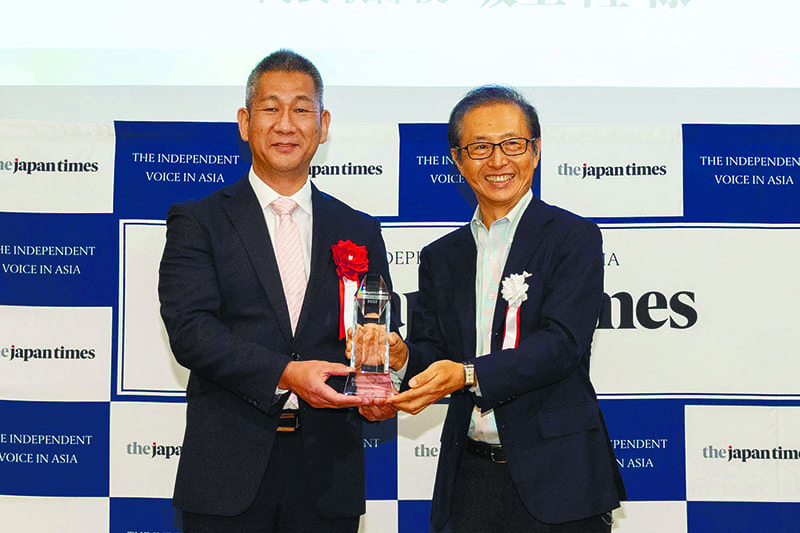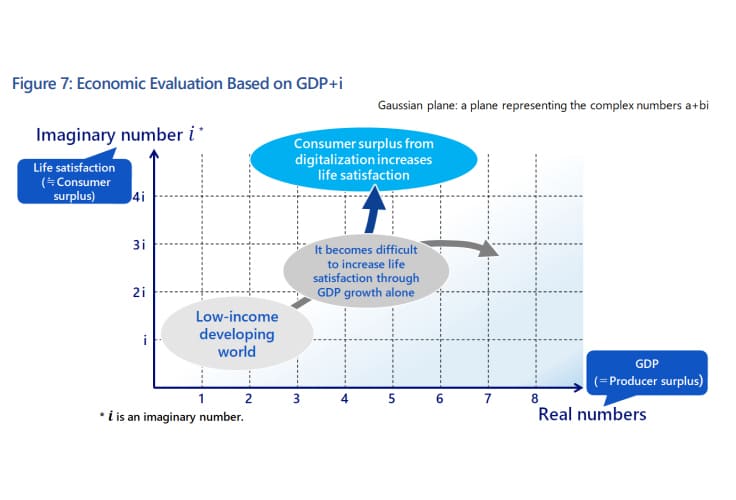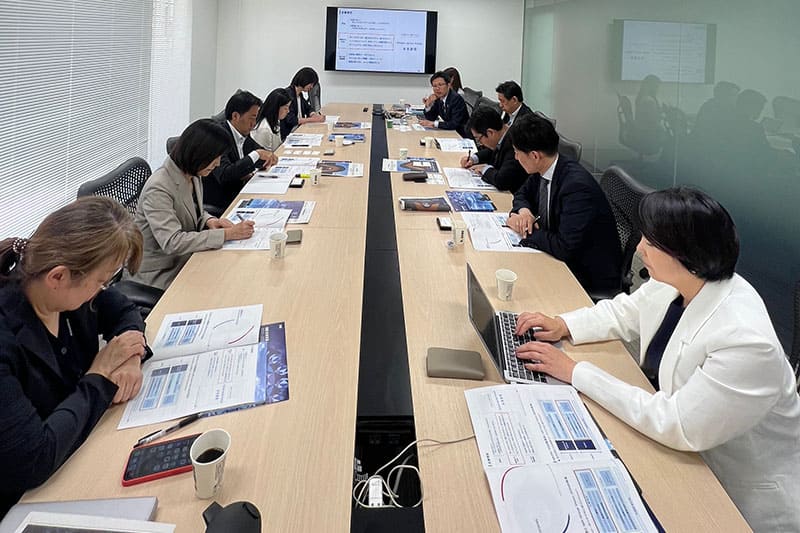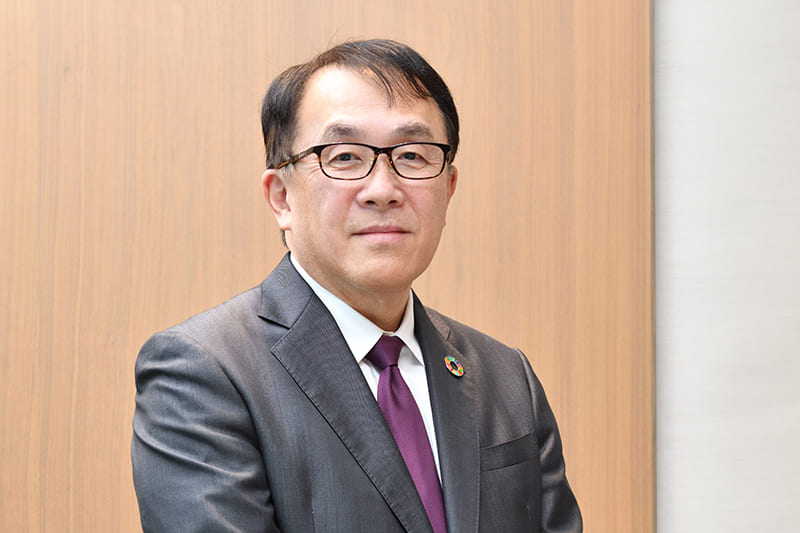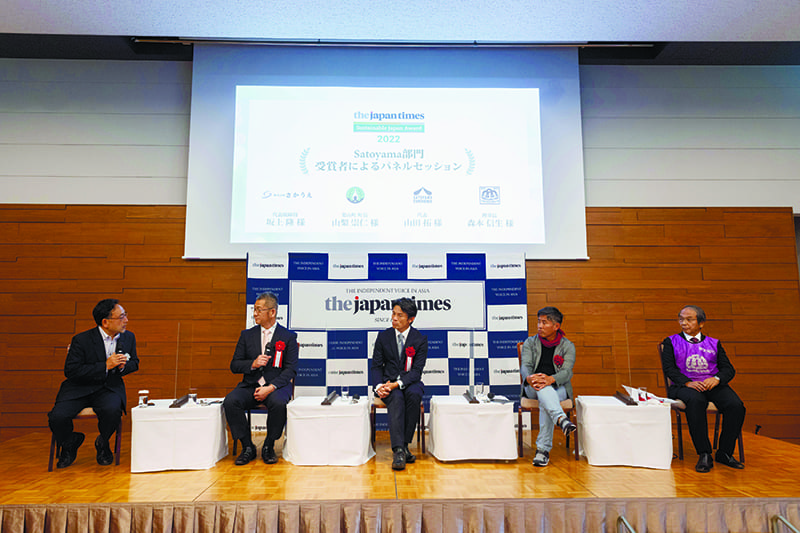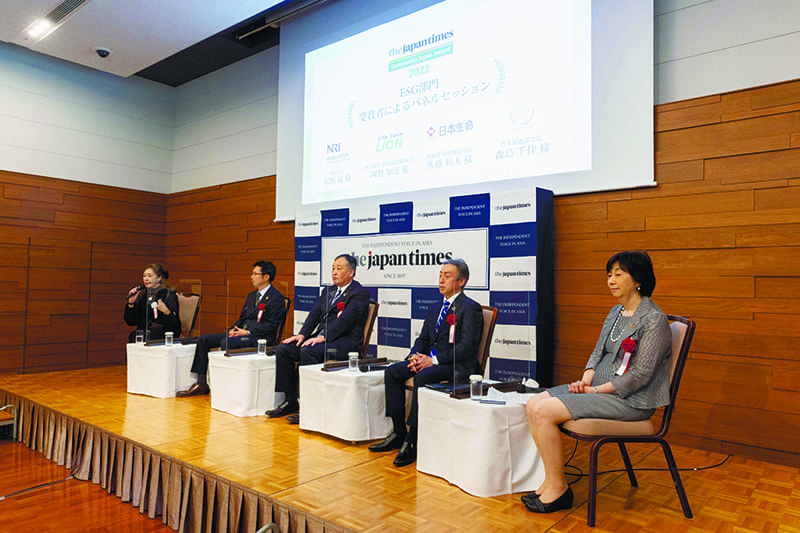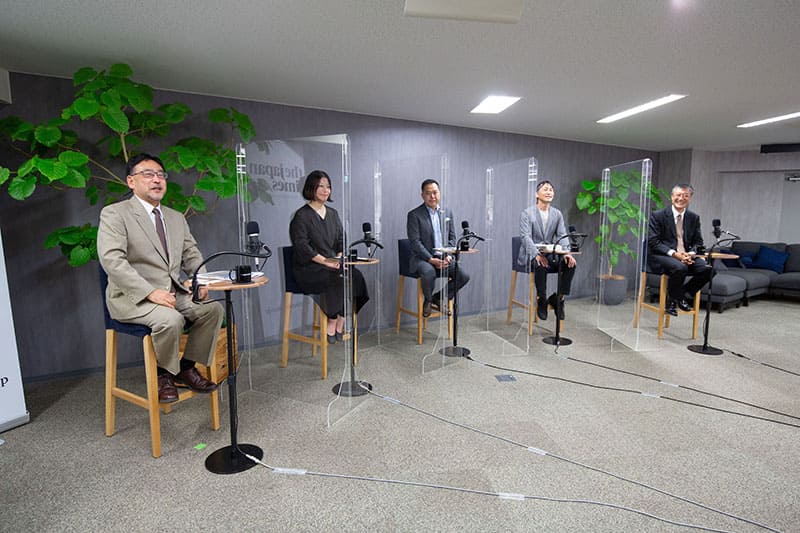October 21, 2022
Comments from the awardees: Nomura Research Institute and Sakaue Co. Ltd
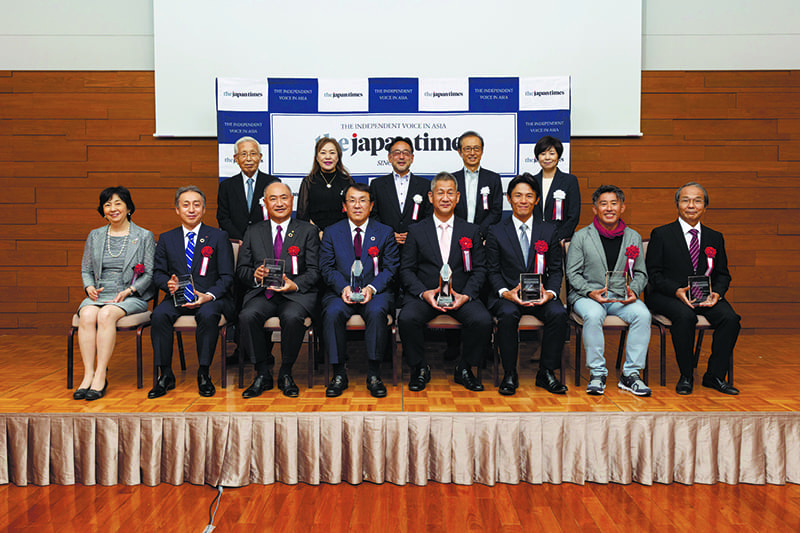
Sustainability requires the provision of social value, says the Grand Prize winner
Shingo Konomoto
CHAIRMAN, PRESIDENT & CEO, REPRESENTATIVE DIRECTOR, MEMBER OF THE BOARD NOMURA RESEARCH INSTITUTE LTD.
The Grand Prize was awarded to Nomura Research Institute Ltd. (NRI), whose president and CEO, Shingo Konomoto, accepted the award at the ceremony. “I was a bit surprised when I was notified of our company winning the Grand Prize,” he said. In his remarks, he reiterated his company’s commitment to sustainability and provided an overview of NRI’s active business segments. A private think tank founded just after Japan’s postwar period of high growth began, it has expanded its capabilities with consulting and information technology solutions that it provides to other businesses. The solutions it provides today are always aiming to balance a company’s growth trajectory with sustainability. “It has become clear to me that the only companies that will survive into the future will be those that entwine themselves with social issues,” Konomoto averred. He said businesses need to deeply consider what value they are providing to society, and so part of NRI’s role is to help them discover that through business-to-business consultations, workshops and study sessions, much as it has done in-house for many years already. “I am elated to receive this award, and to honor it we will continue to work hard toward fostering sustainable management teams,” he said.
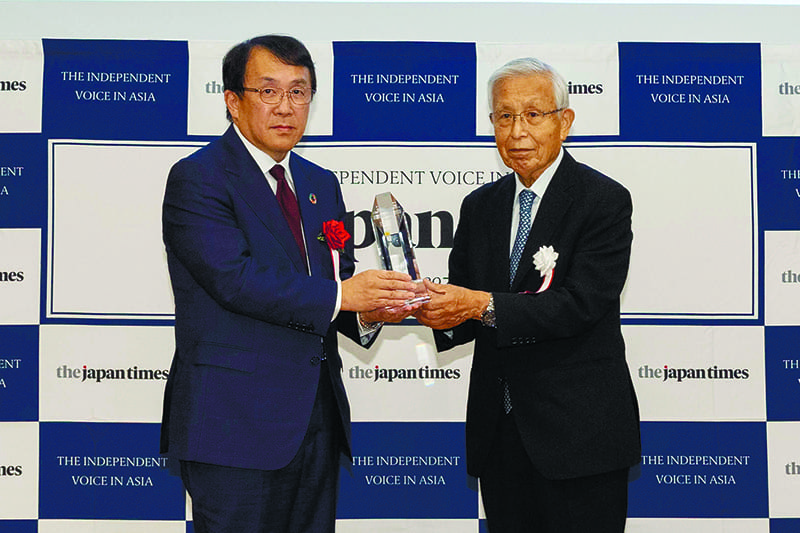
Satoyama areas are an important part of Japan’s drive for a sustainable food supply
Takashi Sakaue
PRESIDENT, SAKAUE INC. LTD.
The Sustainable Japan Excellence Award went to Sakaue Inc. Ltd. After formally accepting the award, the president of the company, Takashi Sakaue, offered several observations. Due to climate change and the drastic impacts of Japan’s aging society on the agriculture industry, companies that have developed best practices, like Sakaue through its satoyama beef project, are of paramount importance. The project involves allowing cattle to freely roam and graze in fields that had been abandoned. “This,” he said, “makes the cows happier and healthier, as they get their nourishment directly from the land.” After the cows become meat in the form of kuroge wagyu, those who consume it should not forget that they are part of this natural cycle. Sakaue highlighted just how important it is that Japan “learn from the past” and remember that we cannot forget our place living side by side with nature. With youths in the countryside increasingly moving to large cities for work, he said, we need to “revitalize” the satoyama idea if we want society’s food supply to be sustainable. “There is still a lot of work to do, but we want to continue being part of the solution going forward with our satoyama beef project,” he said.
